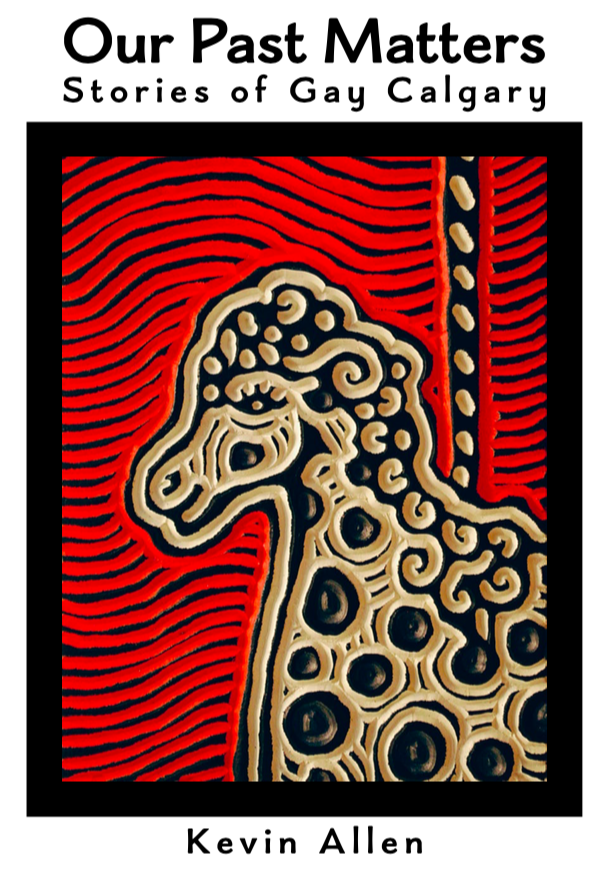Everett Klippert was born in Kindersley, Saskatchewan in 1926, the youngest of nine siblings. His family relocated to Calgary when he was just 2 years old. Sadly, Everett’s mother died in May 1933 from kidney disease.
Everett’s 20-year older sister Leah took it upon herself to look after her eight younger brothers. The family was evangelical Baptist, and Leah made sure that the family regularly attended services at the Crescent Heights Baptist Church. There were so many brothers in the Klippert family that they were able to form their own baseball team with their father, called “the Klippert Nine,” which was once featured in the Calgary Herald.

Everett (middle back row) with his father and brothers: The Klippert Nine. Source: Klippert Family, Photographer Lorne Burkell.
Everett’s siblings were discomforted by the police’s revelation of his homosexuality, but they stood by him – particularly Leah – throughout his drawn-out troubles with the state.
In 1960, after Everett’s first arrest, the Klippert family paid $9000 in bail: an equivalent of $72,000 in today’s dollars. For the trial, the family also procured a supportive reference letter from their Church Reverend, J. E. Harris. Although found guilty and incarcerated in Prince Albert, Saskatchewan, Everett’s siblings made efforts to visit him in the Penitentiary.
Leah worked as a legal secretary in the offices of J. D. Salmon, Solicitor for the City of Calgary. It was she who kept writing Everett’s legal correspondence, engaging lawyers, and appealing his court verdicts as unjust: ultimately pushing his case to the Supreme Court. In early 1967, she along with her brother Howard trekked to the Court of Appeal Case in the Northwest Territories.
Howard Klippert was brought forward as a witness for the defence. In the trial, he said: “to the best of my knowledge Everett has been well liked and well received with my friends and family. He has always been noted for his gentleness and willingness to help others. I have never known him to be violent – never. On many occasions when going to school together, I have had to protect him from others who would start a fight with him.”
Everett would not be released from jail until 1971 and went to live with his brother William in Calgary. Phyllis, Everett’s sister-in-law, said: “He was the funniest person you ever met. He lived with us for 17 years. When he was around, there wasn’t any dark cloud anywhere. He was part of our family for years.” Despite his sunny character, she added that his years in jail had left Everett feeling stalked, and embittered.
Walter Klippert said he and his brothers never talked about their youngest sibling being gay, but “we knew he was out with boys a lot. See, he was a transit driver for the city. He was a popular driver, very happy go lucky. He was really nice to everybody, anybody.”
Eventually, Everett would move to Edmonton and marry his good friend Dorothy at age 57 (she was 65). He reportedly was happy and content in his final years of life, but both he and his family did not talk about the past. He died in 1996 at age 69.
Documentary filmmakers in 2001 interviewed several members of the Klippert family, including Everett’s widow. Most were resistant to the idea of a film. Dorothy said: “I don’t think it is right to bring up the past when you have no concrete way of knowing how he felt about it.”
Everett was buried next to his sister Leah at her daughter’s farm. While she was alive, Leah’s attitude was that she loved Everett, full stop. How could the fact that he was gay, ever change that?
{KA}











Pingback: Canadian History Roundup – Week of October 15, 2017 | Unwritten Histories
Pingback: Klippert Month – the Recap | Calgary Gay History
Pingback: Steven Maynard: “To Forgive and Forget? Homonationalism, Hegemony, and History in the Gay Apology,” 2017 C4eJ [11] – C4eJournal